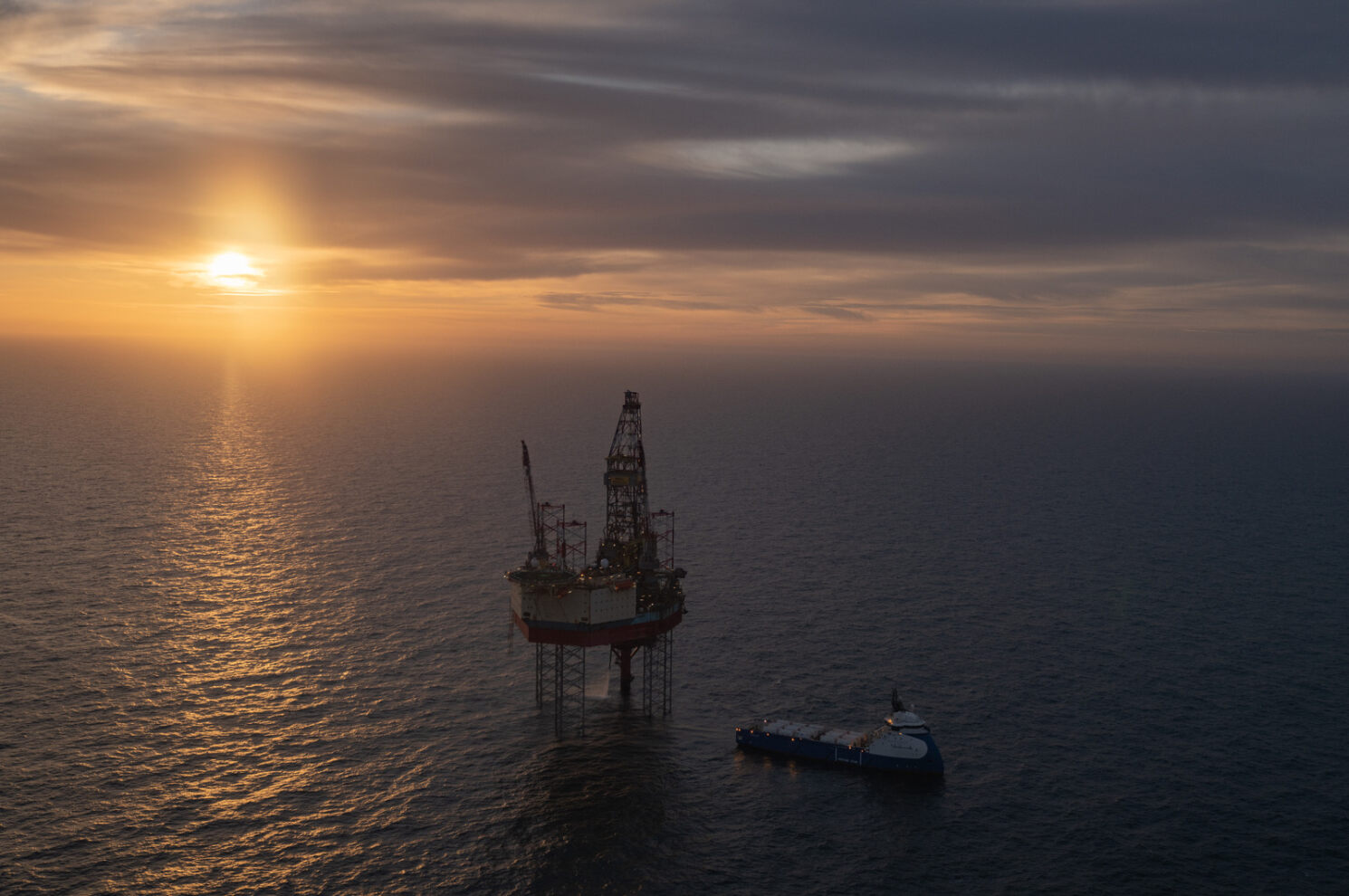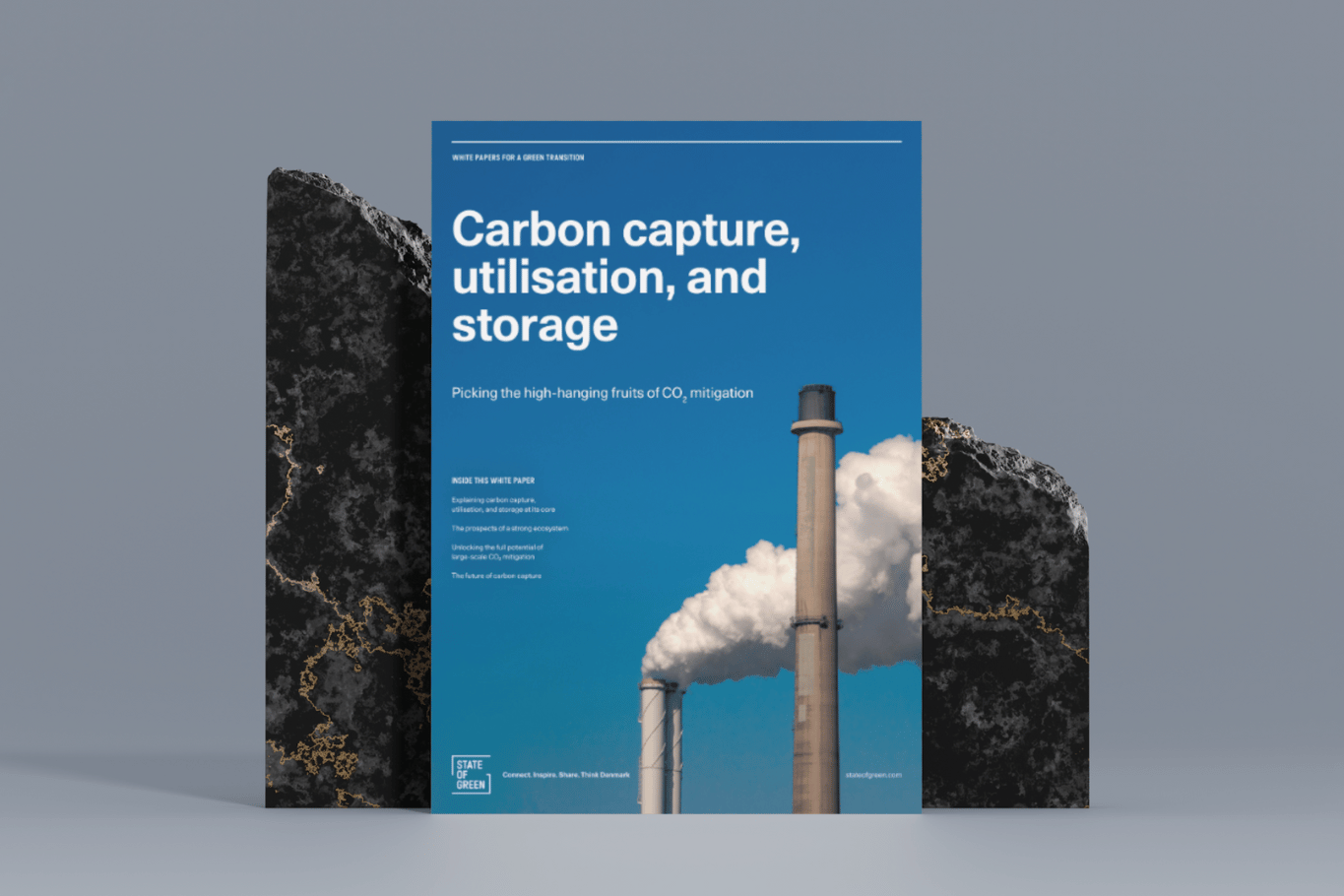Discover carbon capture, utilisation and storage (CCUS)
Learn more about picking the high-hanging fruits of CO2 mitigation in this white paper about carbon capture, utilisation, and storage.
Discover the publicationPerspective
Carbon capture, storage and utilisation
Policy frameworks

Photo credit: Project Greensand


Learn more about picking the high-hanging fruits of CO2 mitigation in this white paper about carbon capture, utilisation, and storage.
Discover the publicationDenmark has actively pursued and secured agreements for CO₂ transport and storage with several countries, including Sweden, Norway, Belgium, the Netherlands, and France. These agreements are integral to developing an infrastructure for carbon capture and storage (CCS) across Northern Europe, creating a functional market for CCS in the region. The collaboration encompasses CO₂ transportation and the use of underground storage facilities, demonstrating a commitment to fostering the development of the CCS industry. Notably, the Aalborg Declaration, signed in Aalborg in 2023, further emphasises the Danish ambitions in advancing these initiatives and enhancing regional cooperation in CO₂ transport and storage solutions.
In December 2023, the Danish Energy Agency began the application process for companies to seek permits to explore potential underground CO₂ storage sites in specified onshore areas, including Gassum, Havnsø, Rødby, Stenlille and Thorning. These exploration licences are initially valid for up to six years but can be extended to ten years. Successful applicants will receive priority for storage permits, potentially lasting up to 30 years, if the sites meet all environmental criteria. By the application deadline in January 2024, the Danish Energy Agency had received more applications than areas available, reflecting industry engagement and readiness to develop these storage options. Final decisions on exploration licences are anticipated in 2024, marking a crucial step in Denmark’s strategy to enhance its CO₂ storage infrastructure.
Denmark is actively exploring potential coastal areas for carbon storage for the sites ‘Inez’, ‘Lisa’, and ‘Jammerbugt’. The planning for exploration permits for these sites is currently in progress.
Following thorough consultations on the new maritime plan, which are expected to be completed during 2024, the Danish government plans to open applications for permits to explore these areas. This consultation process is part of Denmark’s comprehensive approach to responsibly expand its CO₂ storage capabilities, ensuring that environmental and regulatory frameworks are effectively integrated with stakeholder feedback.
Notable developments within the area of offshore carbon storage include the awarding of offshore storage exploration permits in 2023 for the “Greensand” project to a consortium led by INEOS and Wintershall Dea, and the “Bifrost” project to TotalEnergies. The Greensand and the Bifrost projects aim to store up to 8 and 5 million tonnes of CO₂ per year by 2030 in the Danish North Sea respectively, illustrating a significant scale-up in Denmark’s offshore storage capabilities.
In Denmark, three subsidy pools exist to kick-start the industry and ensure cost-effective greenhouse gas reductions within the area of Carbon Capture, Utilisation and Storage. The three pools are known as the CCUS, NECCS and CCS subsidy pools. The CCUS and the CCS pools support the capture of both fossil and biogenic CO₂, with a support period of +20 and 15 years respectively, while the NECCS pool focuses exclusively on biogenic CO₂ with a shorter eight-year term to allow for flexible use of the CO₂ in for example green fuels.
The CCUS subsidy pool of DKK 8 billion was awarded to Ørsted for its projects at the Asnæs and Avedøre Power Stations, aimed at reducing 0.4 million tonnes of CO₂ annually from 2025/2026.
The tender under the NECCS subsidy pool was awarded to the different projects under BioCirc CO₂, Bioman ApS and Carbon Capture Scotland Limited. These projects collectively will ensure the capture and storage of 0.16 million tonnes of CO₂ annually from 2026 to 2032, which is equivalent to the annual CO₂ absorption from approximately 16,000 hectares of forest.
The next tender rounds for the CCS subsidy are offering a combined pool of approximately DKK 27 billion and are expected in June 2024 and 2025.
The Danish regulatory framework for CCS ensures activities align with stringent environmental and safety standards. CCS projects fall under the Environmental Assessment Act, requiring full environmental assessments (VVM) to evaluate potential impacts. Effective risk management and continuous monitoring are also imperative for CCS projects to uphold environmental and safety standards. International standards guide operators in implementing robust risk mitigation strategies, which are scrutinised and approved by regulatory bodies.
These measures include comprehensive monitoring programmes covering everything from CO₂ injection to storage integrity, ensuring early detection of any anomalies and prompt corrective actions to prevent environmental harm or safety risks. Ongoing monitoring and periodic surveys using advanced seismic imaging techniques are essential to assess storage integrity and detect any potential CO₂-leakage. These surveys are carefully regulated to minimise environmental impact, with strict conditions imposed on survey activities to protect both marine and terrestrial ecosystems.